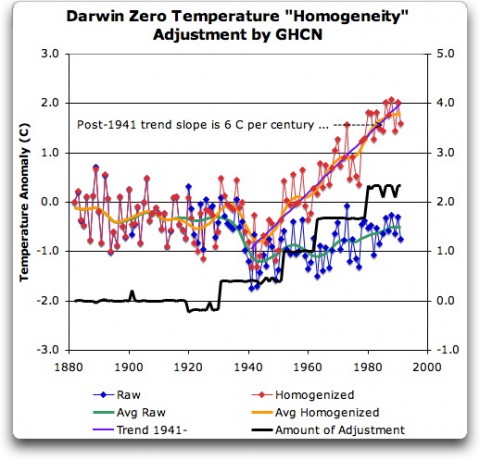If you’re not a wine fan, you may wonder why wine snobs pay so much attention to vintage dates. If you drink the occasional bottle of “Raunchy ‘Roo Red” or “Zesty Zebra Shiraz”, the vintage dates matter very little: by the name, you’d guess they’d be from Australia or South Africa, both hot climate wine countries. Vintage dates are much less important for hot climate wines: the variation from year to year is relatively small. As Michael Pinkus points out, however, it matters a great deal for cool climate wine countries:
Many wine drinkers never notice the vintage date on the wine they are drinking — they just blindly go off buying wine. I talk to many people and very few know what year they’re drinking, just the producer. In a wine region like Ontario that’s a odd way to be drinking your wine. We’re a cool climate region after all and if you don’t understand the difference between a good vintage wine a mediocre vintage wine you could be stuck with a lot of 2003s in your cellar for 10 years or more. The key is to know their drink-ability (2003) or conversely, know how long you should be holding onto wines like [these], a few extra years of aging will give these wines time to mature and integrate, drink them too early and you’ll miss out on all the fun.
In a cool climate region (Ontario, Bordeaux, New Zealand) Vintage date means more than in a hot climate region (Australia, Argentina, Chile) — there temps are always beautiful (read: warm and sunny) and vintage variation plays little part in the finished wine; while in a cool climate region harvest is a waiting game and in many years prayer is a grape farmers best friend.
Take 2010 for instance, this year has the likelihood and pedigree to be even better than the much lauded 2007. What makes 2010 better? Glad you asked. While 2007 had lots of heat and little rain (which grapes love), 2010 has been a longer growing season, with lots of heat and rain has come at the “appropriate” times. If you’ll recall our winter was very mild and bud break occured in April, at that time the prayer for farmers was the ‘Psalm of No Frost’. A longer growing season with lots of heat means good grapes — but that does not always apply to all grapes, but that’s really a discussion for another time.
Most determine a good season by how well the red grapes are going to be — in a cool region white grapes grow well year-after-year — but many of the Bordeaux red grapes struggle (Merlot, Cabernet Sauvignon and Cabernet Franc). 2007 was a great year for the usual Bordeaux varietals as well as others reds that don’t often ripen fully under the Ontario skies.




